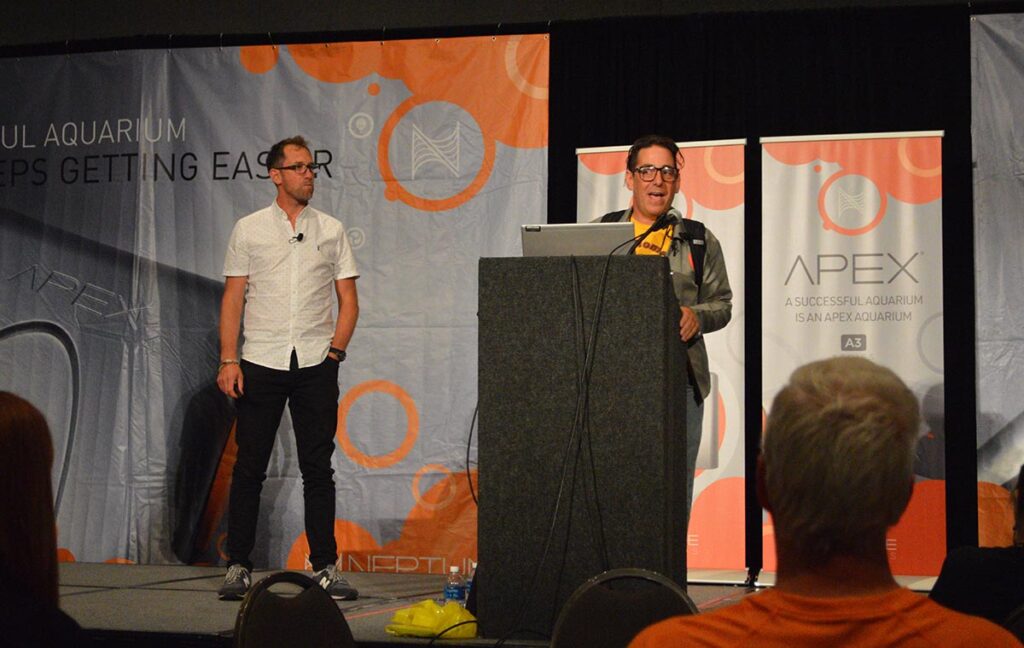
After a two-year, COVID-induced hiatus, one of the MACNA functions that aquarists looked forward to were the in-person presentations. Many aquarists noted that these talks, and the general educational mission, are key aspects that set MACNA apart from a sea of other local and national aquarium and pet events that focus and function primarily to facilitate commerce.
The highlight of opening day of the conference on Friday morning was the well-attended presentation from Dr. Jamie Craggs of the Coral Spawning Lab in London, England.
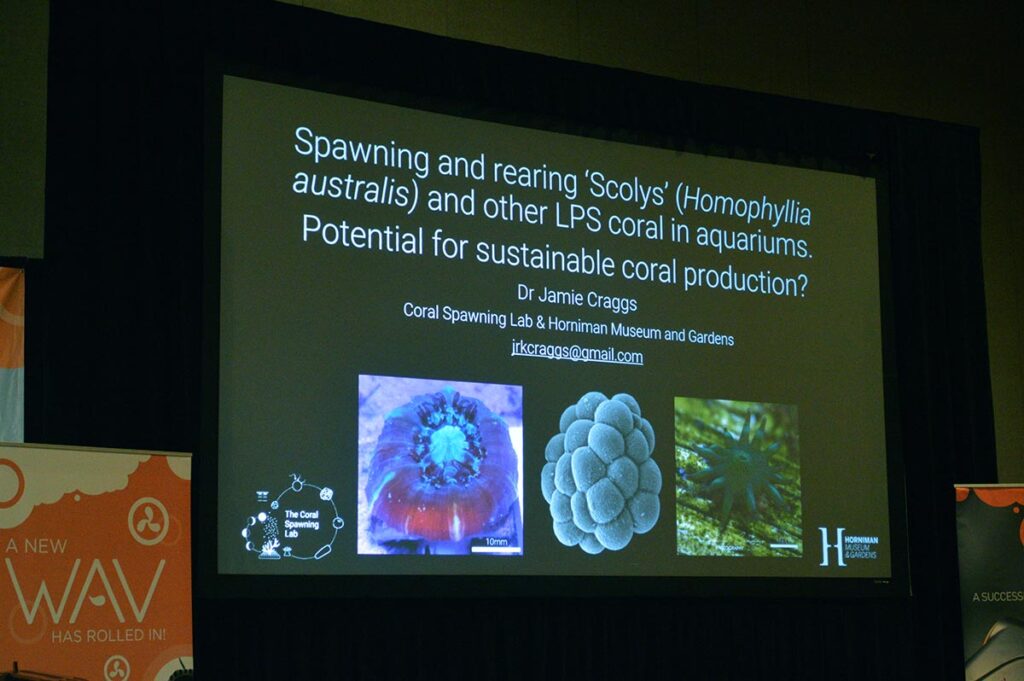
As reported last week, not only has Craggs and his associates successfully propagated the coveted “Scolymia or Scoly” in captivity, but they have succeeded in producing the world’s first captive-bred Elegance Corals. These breakthroughs in sexual coral propagation come at a critical time for the aquarium trade, but even more so for those in the United Kingdom and Europe, where bans on the import of some LSP corals leave aquarists with little to no options for these exciting corals. Sexual propagation offers a new solution, given that LPS corals like these are simply not able to reproduce quickly through asexual fragmentation, unlike many SPS corals and others.
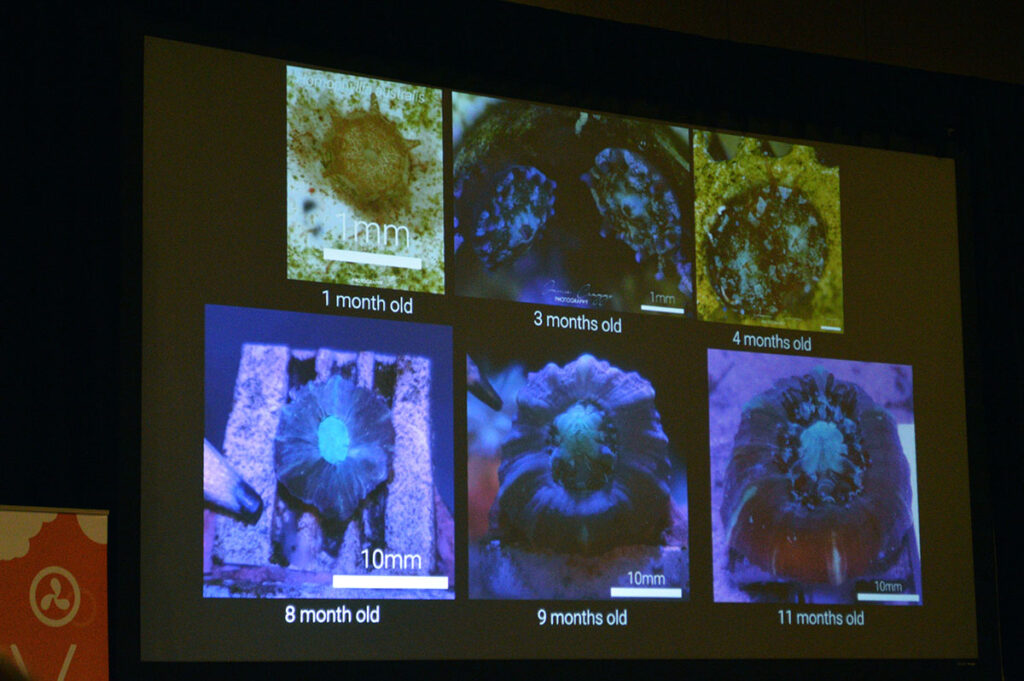
Even if these corals could be simply fragged, the coral hobby thrives on the discovery of new cultivars. When wild collection stops, the primary source for new coral varieties becomes off-limits, and aquarists would be left to simply keep exchanging the same corals from the same set pool of varieties, ad nauseum. Sexual coral propagation offers another avenue through which new, exciting corals can be discovered, right in the aquariums of a successful coral breeder.
Knowing how excited aquarists can get over the one-of-a-kind specimens of “Scolies”, it’s easy to imagine a future filled with young, 1-2 inch Scoly polyps being graded for color and pattern and sold like living gemstones to an eager reef-keeping community. It’s not hard to envision, truly, given the popularity and ready availability of WYSIWYG designer clownfish, where no two are ever quite alike. But unlike clownfish, where it’s a limit of a pair per tank most of the time, the ardent supporter of captive LPS-coral breeding could literally carpet the floor of a reef with an endless assortment of unique baby corals.
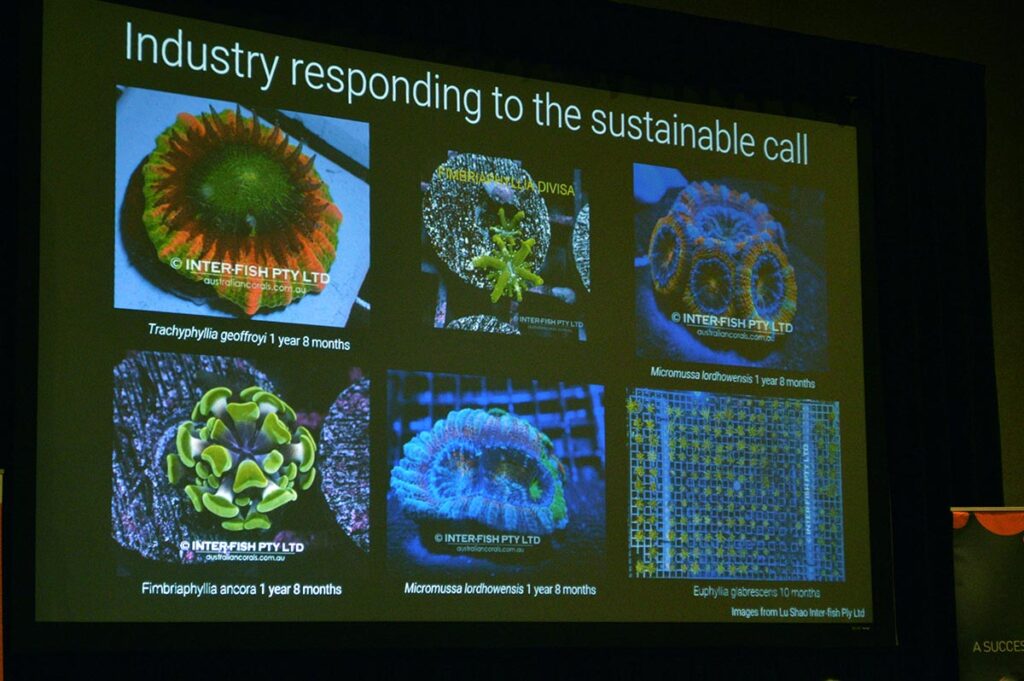
Craggs has the vision to expand coral breeding (sexual reproduction in captive systems), and was elated to showcase the work of others. The Coral Spawning Lab’s creation of ready-to-go coral spawning labs, including some that are built straight into shipping containers, points to a future where an aspiring researcher or aquaculturist has a single-point item to purchase, already designed to the task, so they can focus on the work, not reinventing the wheel.
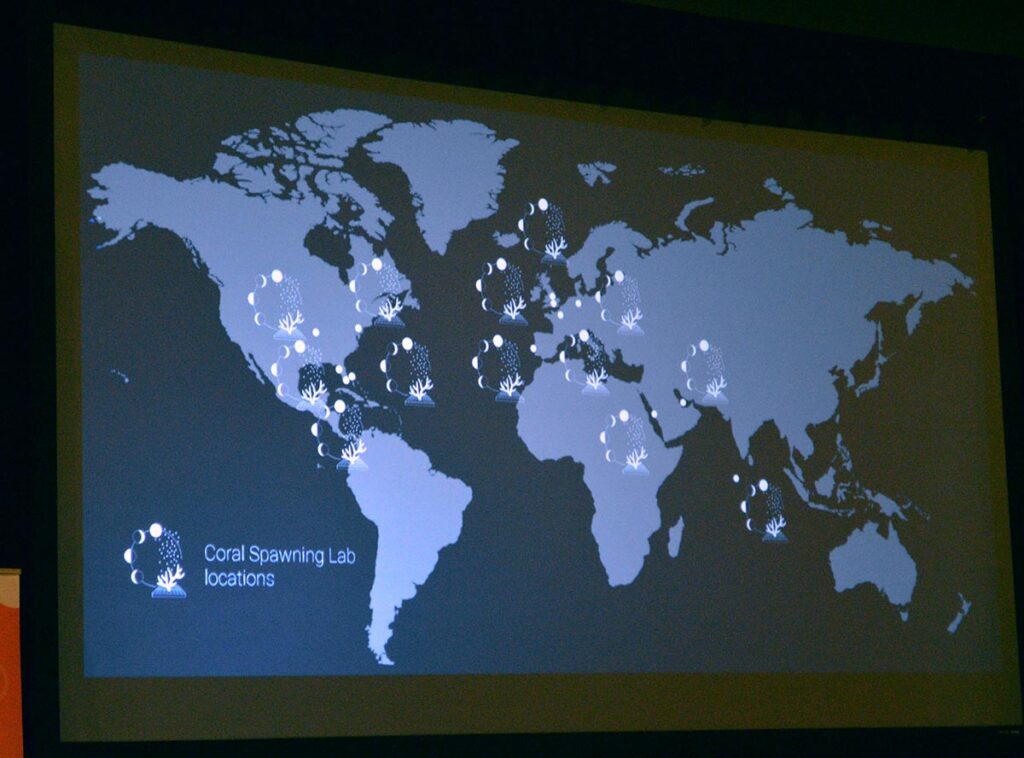
Back in the late 2000s, breeding marine aquarium fishes seemed to be on the bleeding edge of the marine aquarium hobby. Since that time, the number of species that have been propagated, at least once, has tripled. Now, reef aquarists face a bold new frontier, where the knowledge and equipment have intersected to create a world where breeding corals in captivity is a fundamental reality. Perhaps, with a decade or two of refinement, we’ll someday be calling one coral or another the “Guppy of Coral Breeding”.
Exciting talks like these are what draw the movers, shakers and leaders of the marine aquarium world to MACNA Conferences, and the aquarium hobby is richer for them.




